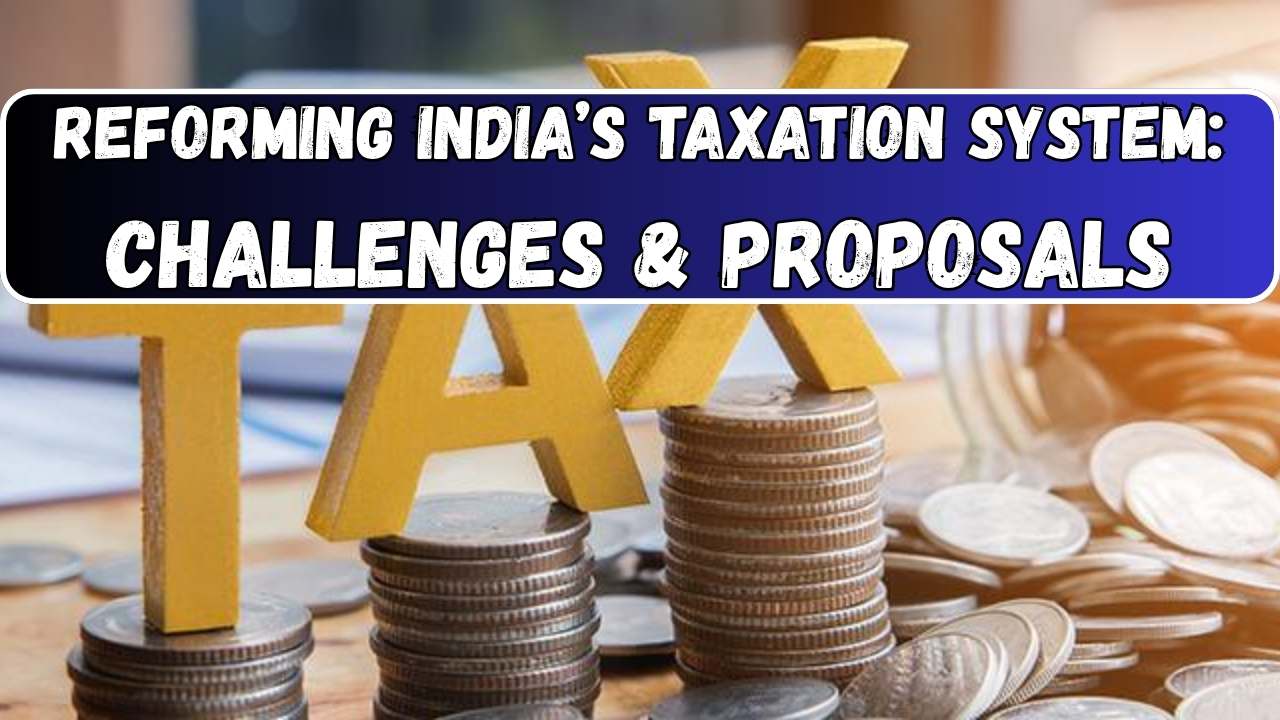The economy of India has been changing and along with that the tax reforms have focused on GST and the direct tax framework. The changes in the taxes have unified the market and reduced the cost. The Reforming India’s Taxation System has brought a reduction in the taxes and with the introduction of the GST, there have been changes brought to the tax system which has made the process very simple. The Reforming Taxation System Challenges includes the narrow tax base system. The unorganized sector has been providing tax evasion for the individuals. The Reforming India’s Taxation System Proposals shall be checked out through the post here.
Reforming India’s Taxation System
The Economy of India has been growing and is bringing more opportunities and innovations for the people. There have been opportunities for investors and the implementation of the Goods and Services Tax have brought about the changes in the tax system. The corporate taxes have been reduced and this has been restructuring the operations of the business. The changes to the tax system have been reducing cost and there is a simpler compliance with regulations. The goal is to create fair and competitive tax system which attracts large investment opportunities.
The Income Tax Act of 1922 was launched for the first time and the amendments were made more than 65 times. The taxation system has brought an update during recent years and the focus is to make the tax system more digital and transparent. The GST is the Indirect Tax which is levied on the supply of goods and services till the final consumption. The Direct Taxes include the salaries, capital gains, housing and others. Changes have been brought to the tax system and the challenges faced include the narrow tax base and complexity in the process. The Reforming India’s Taxation System Proposals shall be checked to know what all can be done towards the tax system. The given post shall provide the full facts on the taxation system of India which is changing.

Reforming Corporate Taxes
- The Companies shall pay the Corporate Taxes on Income and this will vary from 20% to 40% and the Domestic Companies are based on the Indian Companies Act.
- The reforms to this were in the year 2019 where the taxes were reduced to 22%
- The rates have been most attractive in Asia and this makes India strong choice for Globalization
- This move was accepted by the Domestic and International Investors
- Low Taxes helped India to have a mark on the Manufacturing Hub.
Modernization
- India has brought a digitized tax process
- Human interface has reduced the delays and have brought fairness
- Business can have the tax process very quickly now
- Investors confidence shall be boosted
Features of GST 2.0
- Multi tier slab rate has been shifted to 2 tier slab rate which is 5% and 18%.
- Daily use items have been moved to 5% or NIL slab rate
- Taxes on cars and electronics have been reduced from 28% to 18%
- Luxury and sin goods have been shifted to 40% slab
- There has been a reduction in the rates for sectors like agriculture, textile and construction.
Reforming Taxation System Challenges
- The major portion of the economy is out of the tax net and this reduces the revenue.
- The system has various laws and creates confusion, complicates the compliance for business and innovations
- Business have been facing excess documentation
- GST is including various rate changes and there is technical issue in the system
- The tax avoidance and evasion have been very difficult to control
- The complexities can’t be handled which later hinders the reform implementation.
Reforming India’s Taxation System Proposals
The following proposals are targeted best to overcome the challenges faced:
- The GST simplifications will push towards the few tax slabs which could avoid confusion and will enhance efficiency.
- Incorporation of petroleum products in GST is very crucial to create a national market
- The NITI Aayog has proposed to extend the tax system
- Usage of AI and big data will be expanding the tax forms.
FAQs On Reforming Taxation System
What changes have been brought to the tax system in India?
The introduction of GST has brought a simplification of the indirect taxes and this has also brought a reduction to corporate taxes.
What challenges are faced towards reforming the tax system?
The new system has been creating confusion and the complexities can’t be handled easily.
What have been the Proposals towards the tax system?
The GST simplification shall reduce the tax slabs and inclusive of petroleum products in GST is to create a national market.








